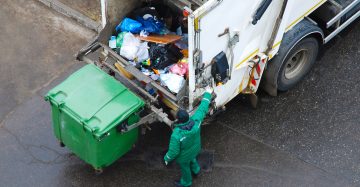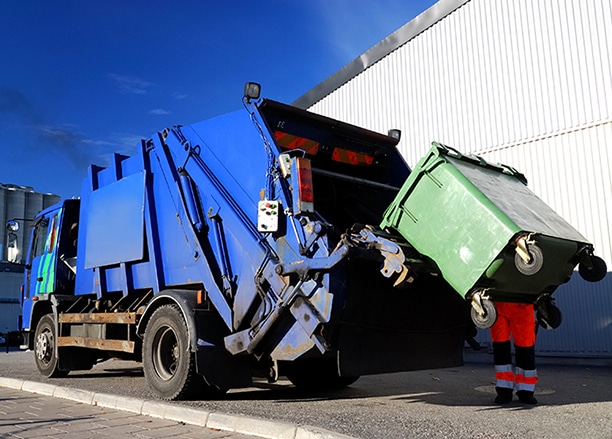

CITIES & GOVERNMENTS
What does a smart waste solution look like in a city?

We are in an era of rapid urbanization, due to population growth and industrialization. As a result, one key challenge cities are facing is the management of increasing solid waste and its environmental impact.
But, most cities and their city managers are still using dated and often inefficient methods of waste collection: resulting in increased pollution, strained teams, and a lack of budget to hire and invest in human capital to manage the influx.
We already know that city solid waste is growing at double the rate of urbanization, which creates an urgency for cities to adopt smart waste management technologies. This will increase efficiency, lower collection costs, and help cities achieve sustainability goals.
So, what is the current state of cities?
Unfortunately, many city managers have a limited view of how much waste is disposed of, where it’s disposed of, and when. They also have limited insight into the collection process. This challenge is hard to solve without a centralised system driven by data to see the waste collection lifecycle in real-time and mitigate its inefficiencies.
If we look at data as a standalone element without considering smart waste management, it is one of the most powerful tools we use on a global scale to influence decision-making.
Whether it’s measuring the number of purchases made to determine when new stock needs to be bought, or tracking an athlete’s training to document progress, data is king: so, why are cities not capitalizing on this.

The main “solution” we see being proposed is increasing waste collection frequency – which in some circumstances can help, but it’s a short-term solution to a longer-term problem: it’s also not a sustainable solution.
We see the result of this as empty bins being visited, increased CO2 emissions, traffic congestion, reduced public safety, and once again, no way of measuring its efficiency. In this situation, no one wins: the end customer is over-charged, unnecessary fuel consumption and CO2 emissions rise, and human capital isn’t used to the best of its ability.
What is the long-term solution?
In some circumstances, looking specifically at waste collection times can help (in the short term) – but as we’ve already deduced, city managers have limited insight on this, resulting in two extremes: bins that are constantly empty with increased CO2 emissions, or fixed collection times resulting in overflowing bins and an unsightly and unclean city.
City managers need to focus on technologies that provide immediate benefits whilst also being cost-effective and scalable.
We propose a smart waste solution which solves all of the above challenges.
Smart waste management focuses on an innovative approach, allowing cities to make data-driven decisions, enabling them to take control of solid waste management: such as collection, waste characterization, and waste disposal processes.
This enables city managers to have complete visibility due to the sensors our smart waste solution consists of. Each sensor provides instant feedback on fill levels, as well as collection times and frequencies.
Our solution guarantees the following:
● Up to 40% reduction in CO2 emissions
● Up to 84% reduction in overflowing waste bins
● Complete digitization of waste and recycling management system
What are the benefits?
A reduction in CO2 emissions also helps cities to meet their CO2 reduction quotas, by optimising the collection route and saving fuel consumption from the waste collection vehicle.
More importantly, city managers can leverage data that support recycling initiatives and the optimization of bin infrastructure, allowing for more detailed future urban planning within waste management
And finally, you can actually collect waste on-demand and evidence how efficient it is. No more guesswork, a cleaner, safer city, and happier citizens: it’s a win-win.
Data-driven solutions are central to making city waste operations more efficient and effective. Our Smart Waste Platform allows the city manager to digitize their waste and recycling management systems providing an all-in-one municipal waste platform to optimize solid waste operations.
To find out more about our solution and how we can help, visit our City Manager page for more information.